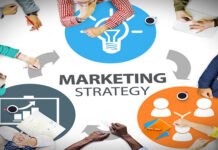Digital Wealth News recently interviewed Michael Partnow, Group President, Wealth Management at JIFFY.ai, about Gen Z job seekers and their requirements when looking for work—a job with a purpose that fuels their creative passions. Here’s what he had to say about wealth organizations recruiting Gen Z workers to enhance their capabilities.
Today, wealth organizations are facing a new challenge: the changing job preferences of the next generation. Traditional entry-level roles that were once appealing are now losing their charm. In the past, many in the wealth industry started in data processing roles. For instance, an entry-level job was typically a job in data processing. Ironically, the more that you processed, with minimal errors, the higher likelihood for a promotion. It was not about what you learned, rather, how quickly your fingers struck a keyboard. However, with the advent of technology, bots or automated software applications can now handle these tasks, making the traditional roles less attractive to Gen Z job seekers.
Let machines do the work, and let people think
“I go back to the philosophy of ‘letting machines do the work and letting people think’”—great words from Jim Henson. And there are a lot of benefits implied by that statement. Machines remember, they don’t get tired, they don’t complain, they don’t take weekends off.
Organizations that use machines to do tedious manual tasks are considered forward-thinking. They utilize automation apps to increase capacity, blend cost savings, and capture revenue faster. They free up their people from such repetitive tasks and give them time back to think and be creative, interact directly with people, and focus on the needs across the value chain,” comments Partnow.
He says it is a massive win for these organizations to use automation because they now have the excess capital to attract Gen Z individuals, place them in jobs they want, allow them to think and be creative, etc. When an organization invests in intelligent automation technology, it opens time for humans to think creatively and solve problems faster.
Cognition-as-a-Service (CAAS)
Cognition-as-a-Service (CAAS) is a computing model that provides capabilities which mimic human cognitive abilities. It is based on technologies such as artificial intelligence (AI), machine learning (ML), natural language processing (NLP), fuzzy systems, nonlinear systems, and adaptive control. CAAS can gather data from sensors, terminals, machines, and more. The model helps users understand their environment, collect, elaborate and exchange information, and adapt to changes.
“With outdated processes and technology where humans support everything, delays are inevitable. Now, machines can do several tasks much faster and more accurately. When you partner with AI and CAAS, the possibilities are endless,” Partnow says.
Partnow believes that organizations should not fear new technology but embrace it. They must understand how it will allow all employees, especially Gen Z, to think and creatively use their minds. This generation has a pivotal role to play in thinking about outdated processes and revamping them to create more elegant experiences across entire value chains. On the other hand, Gen Z expects to leverage intelligent automation tools to process work faster and AI-driven no-code platforms to build solutions more efficiently, so they can use their time and cognitive abilities for elevated problem-solving.
The Gen Z skillset: Creative Arts and AI
Partnow comments that there is a greater focus on technology today, where previously it was a specialty.
“Technology and AI should be much more core—like reading, writing, and math—even at the younger grade levels. And it’s also vital to shift to the mindset of unleashing the creative capabilities at an early age, whether in the theatrical arts, writing, music, or traditional art.
We must find ways to express ourselves because that’s what the future entails: conducting the core processing to think and find solutions. It’s elevating your mindset because you must open it up through the creative arts to bring something new to a company,” he explains.
Gen Z and the employer
Partnow believes that Gen Z should look for job opportunities at organizations that are already thinking about how to evolve with the power of technology. Enterprises must be open to educational backgrounds in various fields and further train Gen Z in customer service and client-facing roles.
“Gen Z may be challenged with customer service and client-facing skills because they’ve been so isolated and live and breathe on their phones; human interaction often gets lost. Humans seek human interaction, understanding, compassion, and empathy. So, hiring a Gen Zer with some background in psychology or sociology would go a long way” he says.
What has shifted is that Gen Z is interviewing the organization just as much, if not more, than the organizations are interviewing them. Gen Z must do their homework on the organization to ensure that it is adopting the latest technology, embracing AI, and having the most cutting-edge tech stack in the industry.
“Individuals seeking employment want to know whether you’re a forward-thinking organization and that they’re not going to be forced into that same old, outdated data processing role. Entry-level candidates should ask, What’s your 60-day plan for me? How about your one-year and five-year plans and how will my role evolve?”
“Why not flip the interview and ask the employer what their product roadmap and tech strategy look like,” adds Partnow.
As AI technology is evolving fast, Partnow believes that Gen Z is well-positioned to expand and build upon early AI versions. Employers must be ready to challenge them constantly and enable them to use their education, creativity, and cognitive abilities. If not, they will be hiring for the same data processing position again—and they might never get to know when their Gen Z talent leaves for more challenging opportunities.
Michael S. Partnow is the Group President of Wealth Management at JIFFY.ai. JIFFY.ai’s intelligent automation platform enables enterprises to build business applications that run their processes end to end. Using cognitive capabilities such as intelligent document processing, AI, RPA, ML and advanced analytics, these apps learn and adapt to changing situations impacting the business landscape, and even mimic human thinking and actions intelligently.
Contact Michael at [email protected]







